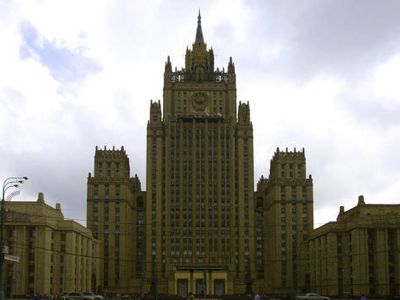
We view with concern the United States’ continued attempts to promote its unilateral geopolitical interests through initiatives that are presented as the opinion of the international community.
The latest political project of this kind is the Ministerial to Promote a Future of Peace and Security in the Middle East, which is scheduled to be held in Warsaw on February 13-14, 2019. Following a thorough analysis of the provisional agenda and programme of this conference provided by the organisers, Russia has decided not to attend it for the following reasons.
Despite the ambitious name, the theme of this conference does not cover the entire range of basic problems ailing the Middle East. In particular, it is not planned to discuss the Arab-Israeli conflict and its core element, the Palestinian problem. The preliminary programme includes the fight against terrorism and extremism, maritime and digital security, the situation in Yemen and Syria, as well as Iran’s role in the region, including missile development and proliferation. It is an obvious attempt to bring together as many countries as possible on an anti-Iran platform, to create conditions for the ultimate erosion of the Joint Comprehensive Plan of Action known as the Iran nuclear deal, and to shift the international focus from Syria and Yemen to anti-Iran efforts.
The participants will be unable to influence the forum’s final decisions, which will be formulated as a non-negotiable US-Polish brief, as the forum organisers have announced.
This conference is being arranged hastily and behind closed doors, without due regard for the opinions of influential countries in the Middle East and beyond. The UN is not among the co-sponsors of the conference, which is prepared as a benchmark event. It is unlikely that this approach will help “build consensus” regarding insecurity in the Middle East.
In light of the above, we once again point out that the current US policy of fostering anti-Iran sentiments and creating new dividing lines in the Middle East is unacceptable. We would like to remind everyone about Washington’s declared plans to create the so-called Middle East Strategic Alliance, which experts have dubbed the “Arab NATO.” Another example is the “deal of the century” to resolve the Palestinian-Israeli conflict, which has been discussed for the past two years. This American initiative has produced a lot of speculation at different levels, but its essence has remained obscure to this day. Meanwhile, Washington’s deliberations about its new plans for a Middle East settlement have stymied international efforts to bring a fair and lasting peace to the region.
Instead of promoting unilateral approaches, Moscow has been calling for collective efforts to build a consensus and find compromise solutions so as to ease confrontation and settle all problems through political and diplomatic methods based on international law and with the UN playing the central role.
We have been consistently upholding this approach. On June 25, 2018, the UN Security Council held an Open Debate on Maintenance of International Peace and Security: Comprehensive Review of the Situation in the Middle East and North Africa. The debate was organised at Russia’s initiative to coordinate international efforts to settle all acute crises in that region as a package and to build an architecture of peace and security there, based on the positive potential of previous Russian initiatives, including the initiative on security and confidence-building measures for the Persian Gulf. These initiatives remain valid. We call for continued cooperation in this sphere led by the UN and its Security Council.











Stay In Touch
Follow us on social networks
Subscribe to weekly newsletter